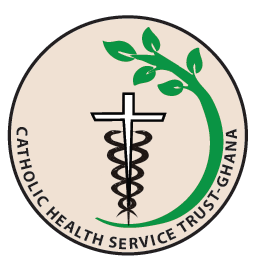 What would you do –if you were the National Health Insurance Authority (NHIA), spending a sizable chunk of your reimbursements on ever rising medicines’ costs in an era of scarce resources?
What would you do –if you were the National Health Insurance Authority (NHIA), spending a sizable chunk of your reimbursements on ever rising medicines’ costs in an era of scarce resources?
The National Catholic Health Service (NCHS) does have a story to share, having successfully reduced the rising cost of medicines procured for its hospitals and clinics by 25%. The strategy has been almost intuitive –leverage your size to beat down costs. And while at it, tweak the strategy a little to deal substandard medications a blow! In the NCHS, this has been christened the Pooled Procurement Programme (PPP) which has been running since 2012 following approval by the Ghana Catholic Bishop Conference. The National Catholic Health Service (NCHS) is responsible for 30% of the health care delivery system in the country, with 34 hospitals and 68clinics located in underserved communities. This literally translated into millions of Ghana cedis when one considered the amounts facilities spent on individual procurement of medicines and supplies. Additionally, the GCBC had major concerns about substandard medications being supplied to the facilities.
Under the inspiration of the Bishops and the steady guidance of a special PPP taskforce/Board chaired by Lawyer J.Y Opoku, the Pooled Procurement Programme (PPP) “Started procuring and contracting as a unit. We used our impressive numbers to guarantee the market to specific suppliers and then negotiated prices down in order to purchase medicines and medical supplies of the highest quality for Catholic Hospitals and clinics in the country” said Pharmacist Stephen Bonnah, Programme Manager.
The design of the programme is as follows: the Pooled Procurement Programme collates data on high priority medicines and non-drug inputs using facility based data. They then use an open tender competitive bidding process to select suppliers who are then awarded periodic contracts. The approved quantities are supplied directly to each hospital and clinic. In turn, the facilities pay the suppliers and then inform the PPP Secretariat in Accra. Three such contracting cycles have been completed since 2012.
To ensure quality, the PPP Secretariat carries out testing of supplies from time to time to check for quality at the Catholic Drug Centre Mini-lab and with the Food and Drugs Board or Standards Board as appropriate. .According to Mr. Bonnah, “The Pooled Procurement Programme has tested many samples of medicines on the PPP list using the minilab donated by DIFAEM Germany in 2012 through a proposal we wrote and sanctioned by the Task Force. All medicines tested from the PPP list of items passed. 20 medicines samples were tested in September 2012, 30 medicines samples were tested in June 2013 and 30 medicines samples were tested in January 2014.”
Drugs whose quality checks are beyond the capacity of the Minilab will be sent to the Food and Drugs Authority for further quality control tests. In addition, storage facilities of health institutions within the Accra, Cape Coast and Kumasi Provinces have been assessed to ensure good storage of medicines at all levels of NCHS facilities. The assessment shows that storage conditions are generally good for medicines, with storage conditions of medical consumables in need of improvement.
By 2014, the programme had prioritised 140 medicines and 109 medical supplies, an increase from the 57 medicines and 34 medical supplies it started with in 2012. In addition, the Minilab was also set up in 2012. The programme has since saved facilities at least 25% of revenue that was previously spent on medicines and supplies. Today, the programme has reached a break-even point after three years of operation with about 97% uptake among its facilities.
Currently, the Pooled Procurement Programme has four main challenges , namely, difficulty in getting timely information from both suppliers and health institutions on orders placed, delay in payment by NCHS institutions to suppliers due mainly to delayed reimbursement by the National Health Insurance Scheme, and the country’s dire economic circumstances which may occasion further requests from suppliers for upward adjustment of the cost of medicines as a result of 17.5% VAT charge on pharmaceutical products, cedi depreciation, utility price hikes, unstable petroleum pricing etc..
Its imperfections notwithstanding, the Pooled Procurement Programme rolled out by the National Catholic Secretariat has a lot of useful lessons for Ghana’s health system running to catch its breath on the back of rising healthcare costs. Perhaps now is also a good time to commend the National Catholic Health Service and its managers for their uncontested historic role in pioneering a lot of initiatives in Ghana’s health system. A typical example would be the Service’s role in piloting the health insurance in the Nkoranza district.
Source: www.sodzisodzi.com
